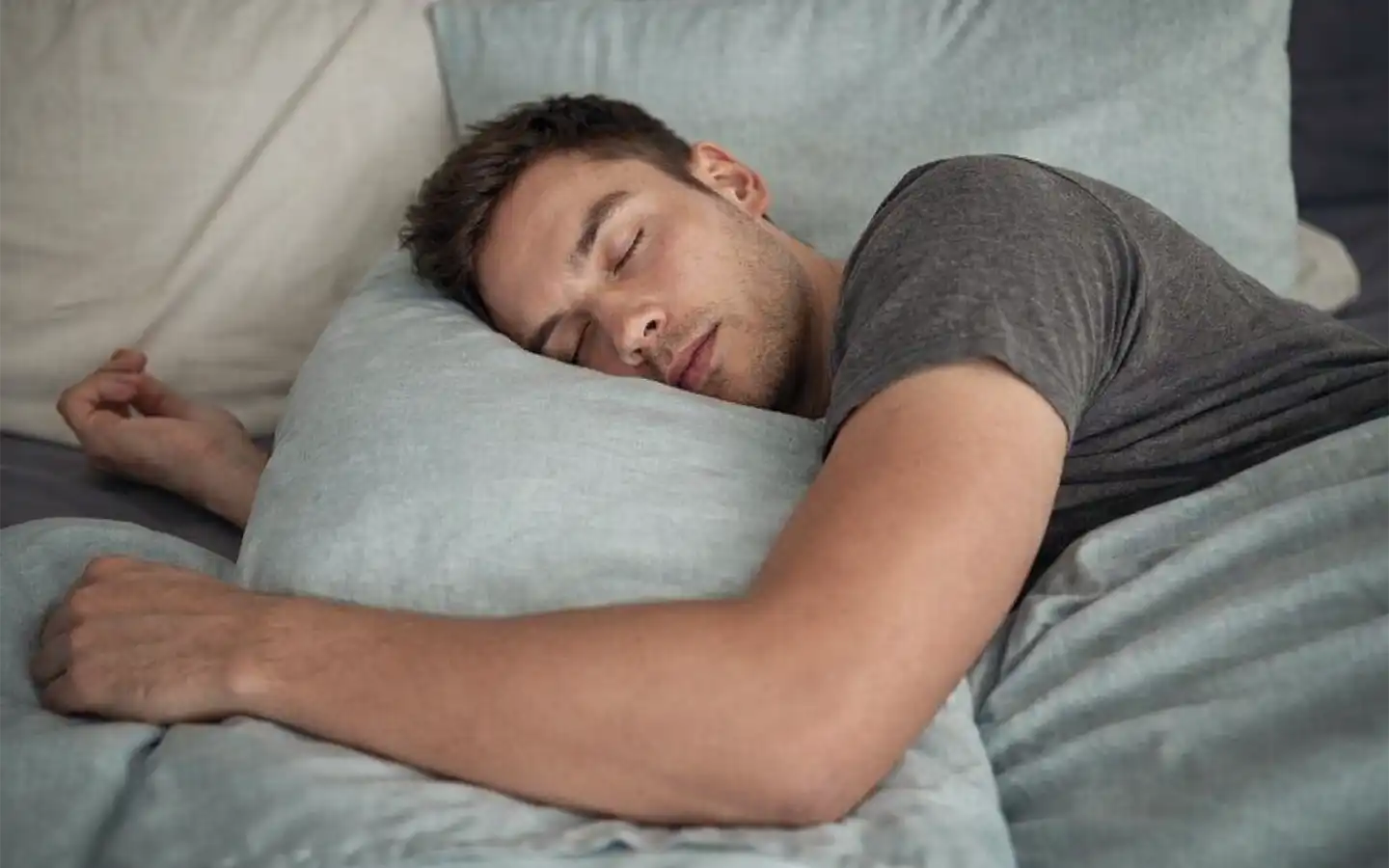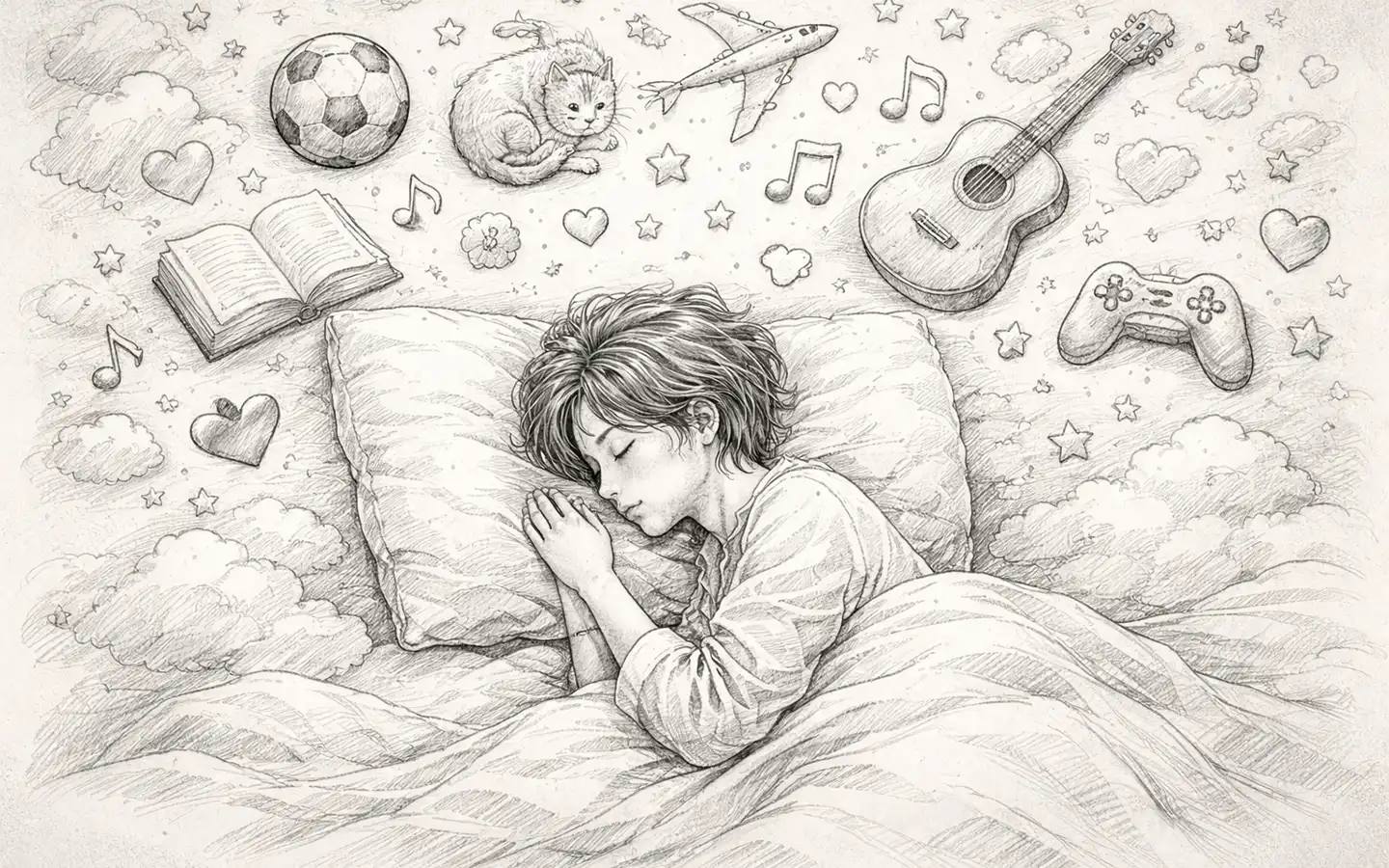June 4, 2025
Stress and Sleep Explained: Why It’s Hard to Rest When You’re Stressed
Stress and sleep influence each other in more ways than one.
Daily stress interferes with our ability to fall asleep, stay asleep, and receive the full benefits of rest.
At the same time, a lack of sleep lowers our capacity to deal with everyday stressors or situations that require our full mental focus and emotional resilience.
Basically, our body depends on sleep to repair itself, but when stress gets in the way, that crucial recovery process is interrupted. Over time, this can lead to a sleep-stress cycle that’s extremely hard to break.
If it becomes chronic, a poor stress and sleep relationship can increase the risk of anxiety, depression, high blood pressure, and even cardiovascular disease. So, if you are seeing these stress-sleep patterns in your own life, what can you do about it?
How Does Stress Affect Sleep?
Most people think of stress as something that happens only during the day (school, work, private matters), but that’s not the case. We often internalize stress and carry it with us, so even when we are supposed to wind down and get ready for sleep, it’s still present and keeps things active inside our minds.
Stress Keeps You Up For Longer
The reason why just thinking about something stressful can keep us awake for longer, lies in the fact that our nervous system can not differentiate between real threat and what we perceive or imagine as such.
That means if we just think of something stressful (which can be different for each person), our nervous system will go into alert mode, also known as the fight-or-flight response. When this happens, the stress hormones, like cortisol and adrenaline, are released into the system to keep us alert and ready for action.
That might be helpful in a real emergency, but it's clearly a problem at bedtime.
Stress Impacts Your Sleep Quality
Beside just making it harder to fall asleep, stress also makes it harder to stay asleep and get the deep, healing rest the body requires to function optimally. If you are not getting enough deep sleep, you might sleep lightly, wake often, or have vivid, restless dreams that leave you feeling just as tired in the morning.
This isn’t something to be ignored or “pushed through”, as everything from mood and focus to immune function and overall health can suffer as a result.
To see how these symptoms affect your recovery, read our guide on fragmented sleep.
Lack of Sleep Leads To More Stress (Sleep-Stress Cycle Explained)
If you didn’t take your sleep seriously enough before, you may want to start today.
The truth about sleep is that we have more power to improve it than we do to control outside stressors. While we can learn to manage stress and avoid internalizing it, our bodies are wired to react automatically. If sleep deprivation becomes a pattern, it only adds fuel to the stress, creating a cycle that’s hard to break.
This is the sleep-stress cycle that sleep experts talk about.
When you wake up not fully rested, you're more sensitive to daily stressors. You may have less patience, feel more emotionally reactive, and struggle to focus. The worst part is that this can increase the chance that stress will return the next night, making it even harder to get the rest you need.
The bottom line is this. If getting enough deep sleep is the best way to process stress and prevent this cycle from reinforcing and affecting our lives, then it should be our priority. Our team’s mission here at Kimba is to help people claim back their sleep and experience its full benefits each night.
That’s why we created Kimba in the first place.
%20Tells%20You%20About%20Your%20Sleep%204.avif)
Sleep Better with Kimba, Even Under Stress
Kimba is the first smart diffuser that uses real-time scent therapy to support your nervous system during sleep, based on the person’s biometric data.
When the body shows signs of stress or disruption, Kimba responds with a gentle pulse of scent that supports nervous system balance and encourages deeper, more stable sleep.
The scent blends Kimba uses are clinically tested and formulated to work with the limbic brain, which plays a central role in regulating mood, stress, and sleep quality.
You can connect Kimba to popular devices like Oura, WHOOP, Garmin, Apple Watch, or any health tracker synced through Apple Health. While your wearable tracks patterns like HRV, heart rate, and sleep stages, Kimba monitors those same signals for signs that your recovery might be interrupted.
Kimba adapts to your patterns
Kimba learns from your sleep patterns over time. Its AI adapts to how your body manages recovery, improving the timing and precision of its responses. This helps stabilize HRV, reduce nighttime disruptions, and support more consistent, restorative sleep—especially when your system is under pressure.
Who can benefit from using Kimba?
Kimba is for anyone who wants to improve their sleep and overall well-being.
That can be parents, students, or professional athletes. Kimba adapts to anyone, no matter if they experience sleep problems due to stress, struggle with chronic insomnia, work irregular hours, or simply want to improve their nightly rest. Kimba not only helps you wake up refreshed but also supports better mood, focus, and resilience throughout the day.
Kimba is easy to use and fits naturally into any lifestyle, making better sleep accessible for all.
[CTA_INSERT]
How To Know If Stress Is the Reason You Can’t Sleep?
Stress shows up in sleep in predictable ways. These signs can help you spot when your body and mind aren’t getting the rest they need.
Trouble Falling Asleep
You lie down but your mind doesn’t follow. Instead of relaxing, it replays the day or jumps to what might go wrong tomorrow. All this mental chatter can prolong your wind-down timer and throw off your sleep schedule.
Waking Up Often During the Night
Fragmented sleep is usually caused by some kind of stress response. You may wake up multiple times, often without knowing why, and struggle to settle back down. This can lead to hours of time spent in bed, without actually sleeping.
If this is something you experience, you can read more why this happens and how to calculate and improve your sleep efficiency.

Bad Dreams or Nightmares
Emotional stress can make dreams more vivid and intense. These kinds of dreams are common when the brain is trying to process unresolved experiences. Stress also increases how often you remember your dreams and can lead to more frequent nightmares, which may disrupt your sleep and leave you feeling tired the next day.
Feeling Tired in the Morning
If you sleep for 8-10 hours but wake up drained, that could mean you didn’t reach the deeper stages of sleep where the body restores. Start by tracking your sleep metrics to better understand your patterns.
Our post on good sleep score can help you understand what those numbers mean.
Physical Symptoms
Shallow breathing, tight shoulders, a clenched jaw, or aching muscles are all common physical responses to stress. These symptoms reflect a system that hasn’t had a chance to reset properly. And when the body stays tense, falling into restful sleep becomes much harder.
Increased Anxiety or Irritability
Stress and poor sleep feed off each other. When you don’t sleep well, it becomes harder to manage your emotions. You might feel more anxious, impatient, or easily overwhelmed during the day. For some people, this can lead to a sleep-stress cycle, where anxiety makes it harder to sleep, and poor sleep makes anxiety worse.

How To Break the Sleep-Stress Cycle: 7 Steps for Better Rest
The reality is, we can’t always control stress or remove it from our lives, but we can change how our body responds.
1. Notice the stress and sleep connection
Notice how your sleep changes on stressful days. Awareness of the problem is the first step to solving it.
2. Create your own wind-down routine
Wind down with intention. Turn off screens early, dim the lights, and choose calming activities like reading, breathing exercises, or gentle stretching. Even five minutes of slow breathing or progressive muscle relaxation can reset your nervous system.
Kimba’s smart scent delivery can amplify these effects by calming the brain as you unwind.
3. Keep a consistent sleep schedule
When your sleep and wake times shift from day to day, your body struggles to stay in deep sleep.
Try to go to bed and wake up at the same time every day, including weekends.
4. Make your room more comfortable
Bright light, noise, or a room that’s too warm can prevent you from reaching restorative stages of sleep. Keep your bedroom dark and quiet, and try to keep the temperature between 16 and 19°C (60 to 67°F) for better, more stable sleep.
5. Avoid caffeine, alcohol, and heavy food before sleep
Caffeine, alcohol, and late night meals can keep your body too alert for sleep. Stop caffeine by early afternoon, skip alcohol before bed, and try to finish eating at least two hours before going to sleep.
6. Track your progress
A tracker can show how often your sleep is interrupted and which stages you spend the most time in.
Use your health tracker or journal to monitor changes. Pay attention to your energy levels, mood, and sleep score. This gives you real feedback.
7. Celebrate Small Wins
Improvement comes gradually. If you fall asleep faster, stay asleep longer, or feel a bit better in the morning, that matters. Build on those wins!
When To Seek Professional Help?
If stress or sleep issues persist for more than a few weeks, or if they affect your ability to function during the day, it’s time to talk to a professional.
Sleep disorders like insomnia or sleep apnea can mimic stress symptoms but require different treatment. The same goes for anxiety or depression. Getting support early can prevent the cycle from worsening.
FAQs: Common Questions About Stress and Sleep
Why do I wake up in the middle of the night when I’m stressed?
Stress keeps your brain on alert, which can make your sleep more fragmented. You may wake up more often or react to small disturbances that wouldn’t normally bother you.
What’s the link between stress and sleep deprivation?
Stress makes it harder to fall and stay asleep. Over time, that leads to sleep deprivation, which then worsens your ability to handle stress. It becomes a repeating cycle.
How do I know if stress is affecting my sleep?
Look for signs like trouble falling asleep, frequent waking, light or restless sleep, vivid dreams, or feeling unrefreshed in the morning. Physical symptoms and mood shifts can also point to a stress-sleep link.
Does Kimba help with both stress and sleep?
Yes. Kimba uses scent-based therapy to guide your nervous system toward relaxation and deeper sleep. It adapts in real time to your patterns, helping you recover night after night.
What’s a good sleep score if I’m trying to manage stress?
A score above 80 generally indicates healthy sleep. But look beyond the number. Deep sleep duration, sleep efficiency, and consistency all play a role.
Can fragmented sleep be caused by stress?
Absolutely. Stress is a common driver of fragmented sleep, which lowers sleep quality and affects emotional recovery.


Continue reading

Parasomnias and Why Sleep Becomes Unstable at Night

What is REM Sleep And How to Increase It Naturally


